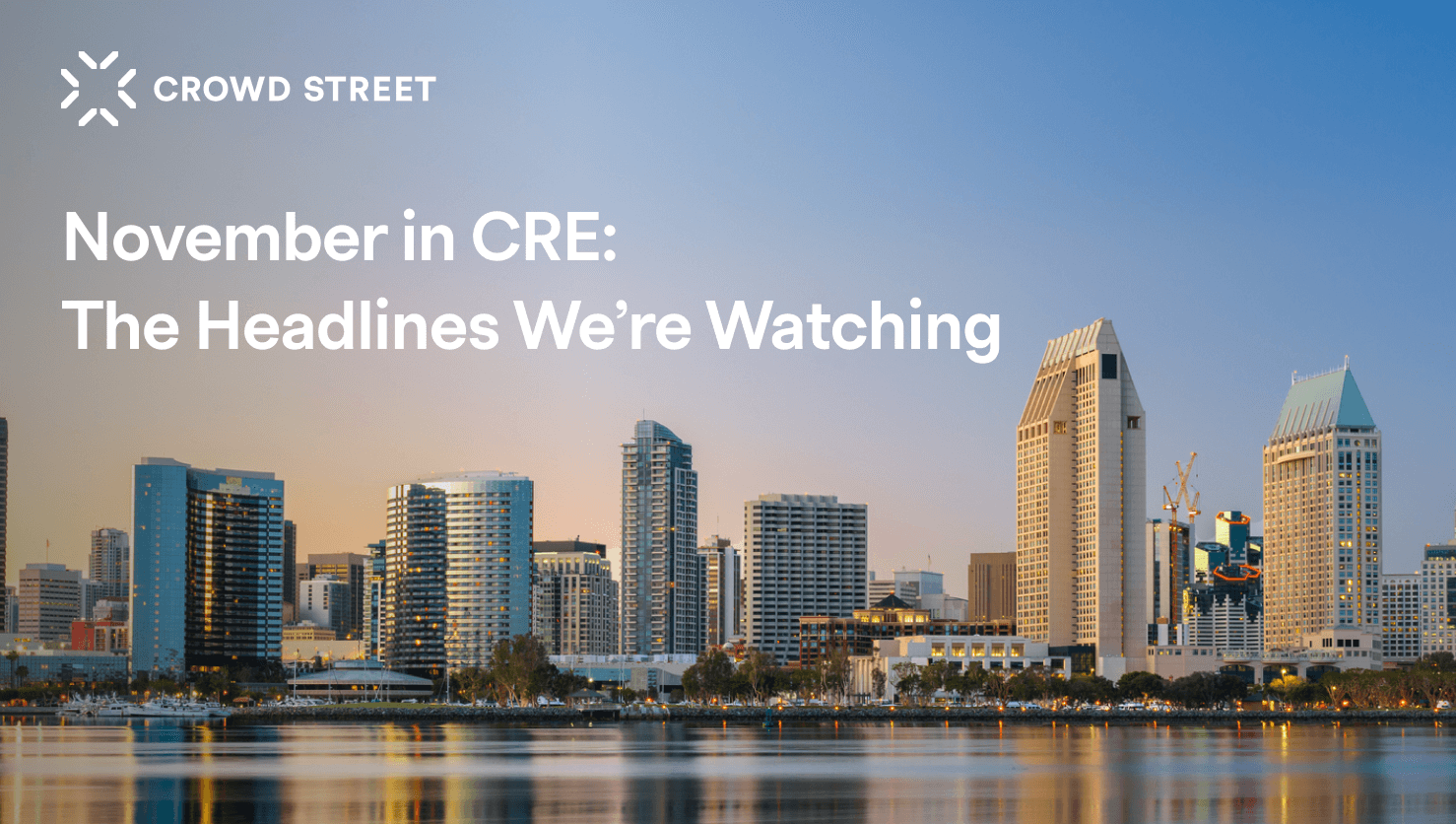CrowdStreet, Inc. (“Crowd Street”) offers investment opportunities and financial services on this website.
Broker dealer services provided in connection with an investment are offered through CrowdStreet Capital LLC (“Crowd Street Capital”), a registered broker dealer, Member of FINRA/SIPC. Information on all FINRA registered representatives can be found on FINRA’s BrokerCheck. Additional information is available in Crowd Street Capital's Client Relationship Summary (Form CRS).
Advisory services are offered through CrowdStreet Advisors, LLC (“Crowd Street Advisors”), a wholly-owned subsidiary of Crowd Street and a federally registered investment adviser. Crowd Street Advisors provides investment advisory services exclusively to private funds and does not otherwise provide investment advisory services to the Crowd Street Marketplace or its users. Additional information is available in Crowd Street Advisors’ Form ADV.
Crowd Street and its affiliates do not endorse any of the opportunities that appear on this website. Investment opportunities available through Crowd Street are speculative and involve substantial risk. You should not invest unless you can sustain the risk of loss of capital, including the risk of total loss of capital. Diversification does not guarantee investment returns and does not eliminate the risk of loss. All investors should consider their individual factors in consultation with a professional advisor of their choosing when deciding if an investment is appropriate. Private placements are illiquid investments, in that they cannot be easily sold or exchanged for cash, and are intended for investors who do not need a liquid investment.
Performance information presented on this website has not been audited or verified by a third party. By accessing the Crowd Street platform, you agree to be bound by its Terms of Use, Privacy Policy, and any other policies posted on this website. The Crowd Street platform is only intended for accredited investors.
For more information, see Legal Documents and Important Disclosures.



















